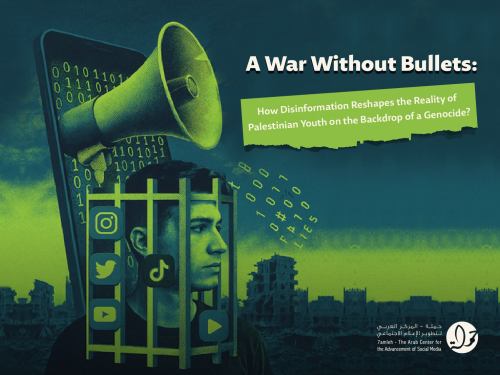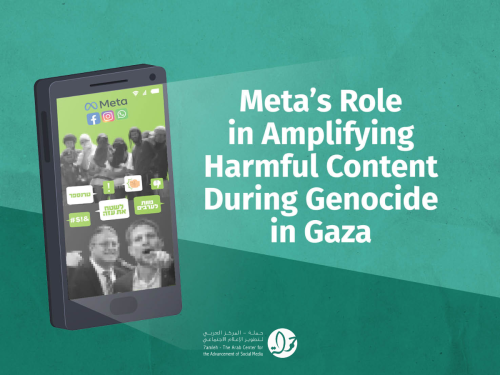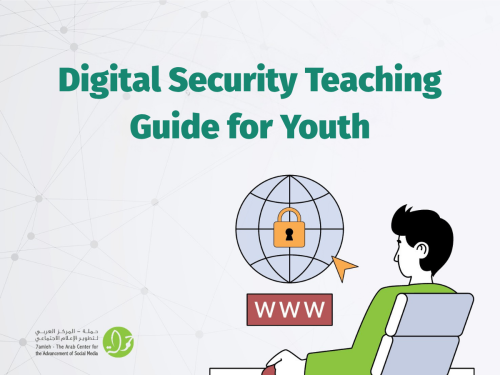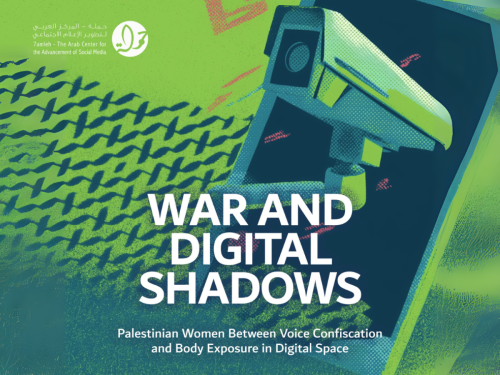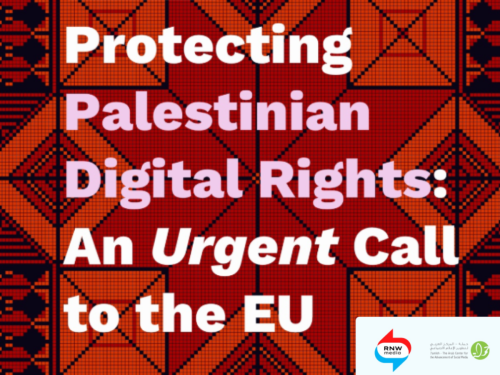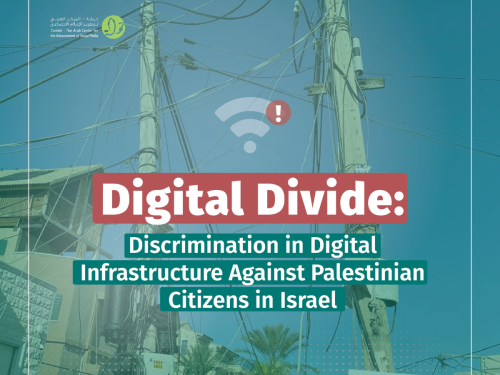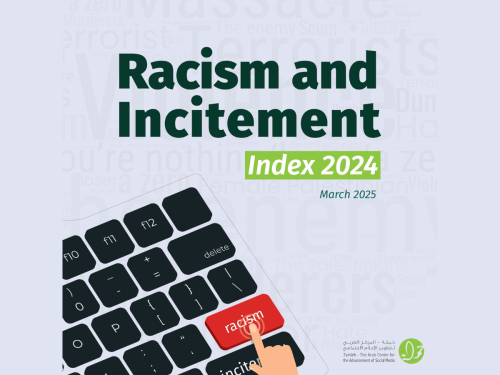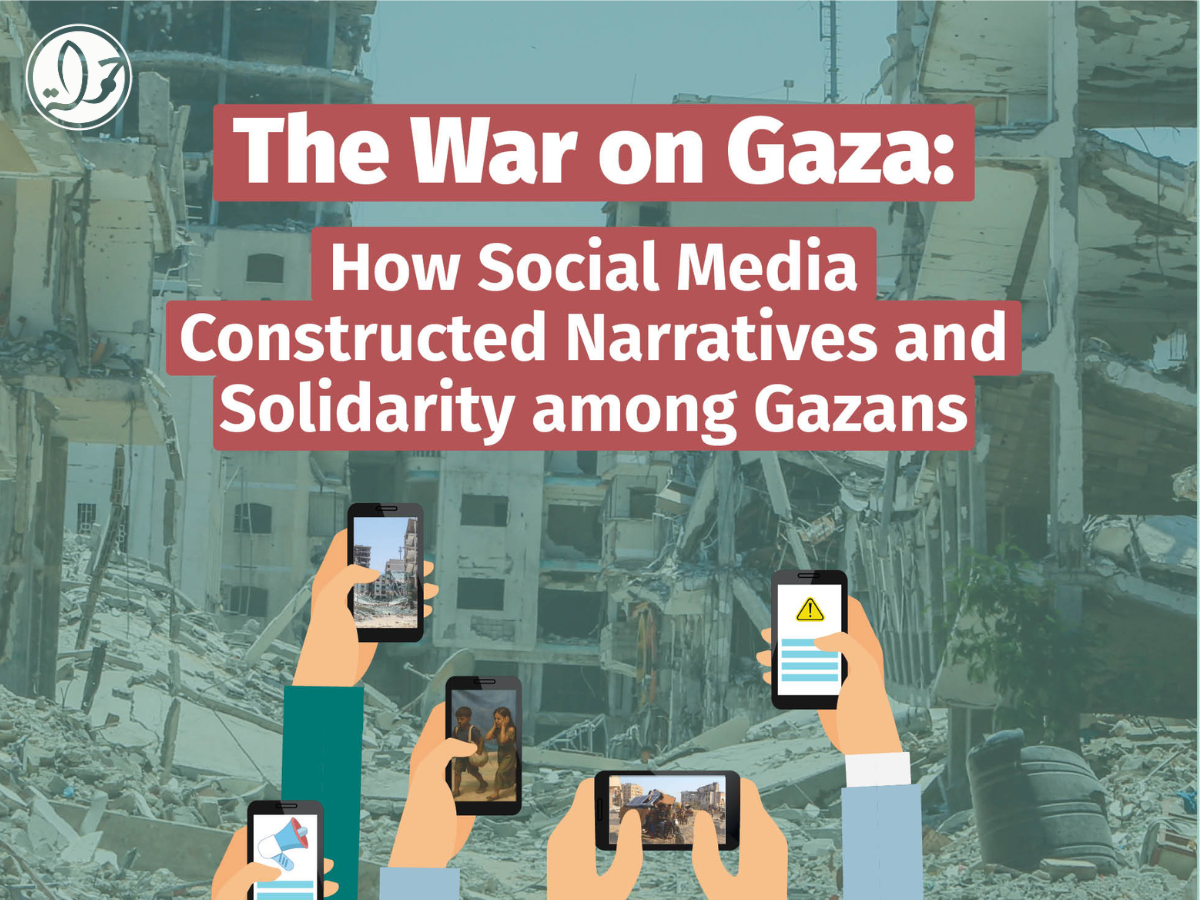
July 8, 2025, 7amleh - The Arab Center for the Advancement of Social Media has released a new position paper titled “The War on Gaza: How Social Media Constructed Narratives and Solidarity among Gazans,” which sheds light on the discursive and social transformations in the use of social media platforms by Palestinians in Gaza since the outbreak of the genocidal war in October 2023. Published amid a heavily restricted and underdeveloped digital environment, the paper contextualizes these shifts within the near-total collapse of Gaza’s digital infrastructure. In the early weeks of the war, 50% of Gaza’s communications network was completely destroyed, while an additional 25% sustained partial damage. According to estimates from Paltel, the overall network outage reached approximately 80%.
While data from the Palestinian Central Bureau of Statistics indicated that 83% of Gaza’s population over the age of 10 used the Internet in 2022, these figures obscure a deeply inequitable digital reality. The Israeli authorities maintain full control over Gaza’s telecommunications infrastructure and frequency spectrum, imposing severe technical restrictions that force residents to rely on outdated 2G networks-insufficient for modern digital use, especially during emergencies.
The paper draws on in-depth individual interviews, a youth focus group, and qualitative analysis of publicly available social media content collected using digital tools. It presents five key dimensions of change: the shift toward using social media as a tool for survival and documentation; emotional exhaustion caused by imposed resilience narratives; escalating social censorship and deepening misunderstanding; erosion of national discourse; and the fragility of international solidarity, alongside the transformation of content from a space for expression into a mechanism for survival.
The findings emphasize that Gaza’s digital space has not only reflected the realities of war but has also become one of its active arenas. Social media platforms have transformed from tools of narrative-building into spaces of symbolic conflict, where surveillance, exclusion, and algorithmic control define who is seen and who remains invisible. Palestinians’ attempts to express, document, and connect have increasingly been met with repression, both from external actors and within Palestinian digital communities.
In this context, the paper calls for urgent political and ethical action to reclaim and redefine the role of social media in Gaza. It recommends strengthening community-led archiving initiatives, providing digital protection for activists and users through security training and resources, raising awareness about coercive discourse and exclusionary practices in Palestinian digital spaces, and fostering non-stereotypical and independent narrative production-particularly among youth.
7amleh affirms that reclaiming the Palestinian digital space and ensuring digital justice in Gaza is not a technical or administrative priority alone-it is a moral and political imperative in the face of censorship, exclusion, and ongoing digital erasure.
To access the full position paper, please visit the link here.
Related Articles
Subscribe to Our Email Alerts
And stay updated with our latest activities, news, and publications!

